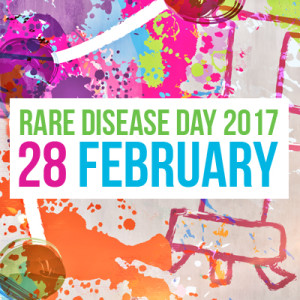 With one in ten American suffering from a rare disease, rare is more common than most believe. And many rare diseases cause chronic pain. U.S. Pain Foundation is proud to once again partner with the National Organization for Rare Diseases (NORD) for this year’s Rare Disease Day. On Jan. 28, people living with or affected by a rare disease will join patient organizations, policymakers, caregivers, health care professionals, researchers, and industry representatives in solidarity to raise awareness for rare disease. This year’s theme is research; the slogan is “With research, possibilities are limitless.”
With one in ten American suffering from a rare disease, rare is more common than most believe. And many rare diseases cause chronic pain. U.S. Pain Foundation is proud to once again partner with the National Organization for Rare Diseases (NORD) for this year’s Rare Disease Day. On Jan. 28, people living with or affected by a rare disease will join patient organizations, policymakers, caregivers, health care professionals, researchers, and industry representatives in solidarity to raise awareness for rare disease. This year’s theme is research; the slogan is “With research, possibilities are limitless.”
To help raise awareness about both rare disease and chronic pain, Ambassador-Advocate Dawn Stancliff will be representing the U.S. Pain Foundation with an information booth at the National Institutes of Health on Jan. 27 and will be on Capitol Hill as a patient advocate the following day. U.S. Pain Ambassador Crystal Grieves also will be hosting an awareness event at West Maryland Health System in Cumberland, Maryland, on Feb. 28.
Ways to show you care about rare:
Host an awareness event.
Use this opportunity to share your personal pain journey related to rare disease and inform others about the challenges rare disease patients face. U.S. Pain staff members can help you carry out a successful, informative event. To learn more about hosting an event and to receive resources for patients and health care providers, email lori@uspainfoundation.org.
Participate in a local Rare Disease Day event.
Many states and other local organizations host their Rare Disease Day events. Show your support by attending an event either online or in person. A comprehensive list of events can be found here.
Share fliers about your condition or Rare Disease Day.
You can obtain this year’s fliers here and then ask to post them in your workplace, health care facility, or other venue.
Use social media to raise awareness.
Change your profile picture to a designated image or share your personal story with a rare disease.
For more information about rare disease and Rare Disease Day, visit www.rarediseaseday.org.
